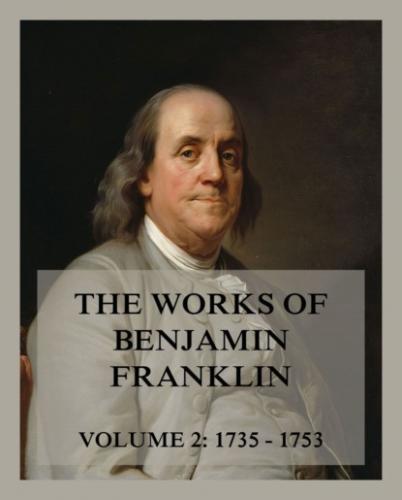‘The proof of gold is fire; the proof of a woman, gold; the proof of a man, a woman.’
‘There is no little enemy.’
‘A new truth is a truth; an old error is an error.’
‘Drink water; put the money in your pocket, and leave the dry belly-ache in the punch-bowl.’
‘Necessity never made a good bargain.’
‘Three may keep a secret, if two of them are dead.’
‘Deny self for self’s sake.’
‘Keep thy shop and thy shop will keep thee.’
‘Opportunity is the great bawd.’
‘Here comes the orator with his flood of words and his drop of reason.’
‘Sal laughs at every thing you say; why? because she has fine teeth.’
‘An old young man will be a young old man.’
‘He is no clown that drives the plough, but he that does clownish things.’
‘Forewarned, forearmed.’
‘Fish and visitors smell in three days.’
‘Diligence is the mother of good luck.’
‘Wealth is not his that has it, but his that enjoys it.’
‘Let thy maid-servant be faithful, strong, and homely.’
‘He that can have patience can have what he will.’
‘Don’t throw stones at your neighbors, if your own windows are glass.’
‘Good wives and good plantations are made by good husbands.’
‘God heals, the doctor takes the fee.’
‘The noblest question in the world is, what good may I do in it?’
‘There are three faithful friends, an old wife, an old dog, and ready money.’
‘Who has deceived thee so oft as thyself?’
‘Fly pleasures, and they ’ll follow you.’
‘Hast thou virtue? acquire also the graces and beauties of virtue.’
‘He that would have a short Lent, let him borrow money to be repaid at Easter.’
‘Keep your eyes wide open before marriage; half shut afterwards.’
‘As we must account for every idle word, so we must for every idle silence.’
‘Search others for their virtues, thyself for thy vices.’
‘Grace thou thy house, and let not that grace thee.’
‘Let thy child’s first lesson be obedience, and the second will be what thou wilt.’
‘Let thy discontents be thy secrets.’
‘Industry need not wish.’
‘Happy that nation, fortunate that age whose history is not diverting.’
‘To bear other people’s afflictions, every one has courage enough and to spare.’
‘There are lazy minds as well as lazy bodies.’
‘Tricks and treachery are the practice of fools that have not wit enough to be honest.’
‘Let no pleasure tempt thee, no profit allure thee, no ambition corrupt thee, no example sway thee, no persuasion move thee to do any thing which thou knowest to be evil; so shalt thou always live jollily, for a good conscience is a continual Christmas.’
A large part of the contents of Poor Richard is rhyme, and rhyme too generally of an indifferent quality. The following specimens are much above the average:
Altho’ thy teacher act not as he preaches,
Yet ne’ertheless, if good, do what he teaches;
Good counsel, failing men may give, for why?
He that ’s aground knows where the shoal doth lie.
My old friend Berryman oft, when alive,
Taught others thrift, himself could never thrive.
Thus like the whetstone, many men are wont
To sharpen others while themselves are blunt.
Syl. dreamt that bury’d in his fellow clay,
Close by a common beggar’s side he lay;
And, as so mean a neighbour shock’d his pride,
Thus, like a corpse of consequence, he cry’d:
Scoundrel, begone; and henceforth touch me not;
More manners learn; and, at a distance, rot.
How! scoundrel! in a haughtier tone cry’d he:
Proud lump of dirt, I scorn thy words and thee;
Here all are equal; now thy case is mine;
This is my rotting place, and that is thine.
When Robin now three days had married been,
And all his friends and neighbours gave him joy,
This question of his wife he asked then,
Why till her marriage day she proved so coy?
Indeed, said he, ’t was well thou didst not yield,
For doubtless then my purpose was to leave thee:
O, sir, I once before was so beguil’d,
And was resolved the next should not deceive me.
POETRY FOR DECEMBER, 1733
She that will eat her breakfast in her bed,
And spend the morn in dressing of her head,
And sit at dinner like a maiden bride,
And talk of nothing all day but of pride;
God in his mercy may do much to save her,
But what a case is he in that shall have her.
POETRY FOR DECEMBER, 1734
By Mrs. Bridget Saunders, my Duchess, in answer to the December verses of last year
He that for the sake of drink neglects his trade,
And spends each night in taverns till ’t is late,
And rises when the sun is four hours high,
And ne’er regards his starving family;
God in his mercy may do much to save him,
But woe to the poor wife whose lot it is to have him.
The astronomical notices of Poor Richard have in them a strong spice of the comic, and he has many paragraphs in ridicule of the predictions which the almanac-makers of that day were accustomed to insert.
‘During the first visible eclipse Saturn is retrograde: For which reason the crabs will go sidelong, and the ropemakers backward. Mercury will have his share in these affairs, and so confound the speech of the people, that when a Pennsylvanian would say panther he shall say painter. When a New Yorker thinks to say this he shall say diss, and the people of New England and Cape May will not be able to say cow for their lives, but will be forced to say keow
